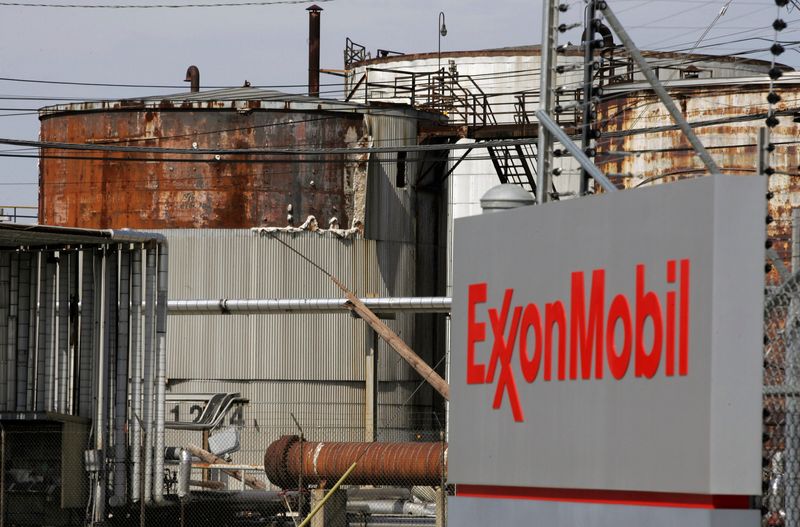This post was originally published on this site
https://i-invdn-com.akamaized.net/trkd-images/LYNXMPEG2H03K_L.jpg
By Joshua Franklin
(Reuters) – Exxon Mobil Corp (N:) paid a big premium to raise $8.5 billion in new debt on Tuesday, as a rout in energy prices and stock market jitters fueled by the coronavirus outbreak eroded investor confidence in the largest U.S. oil producer.
Exxon was among nine major companies that took advantage of a window opening in the U.S. credit markets on Tuesday to issue bonds, after the Federal Reserve announced new measures to boost liquidity in the financial system, including the purchase of short-term corporate debt.
Exxon, which is rated Aaa/AA by credit rating agencies, issued its debt at a 60 basis point premium to PepsiCo Inc (O:), which has a lower investment-grade rating of A1/A+.
“Exxon had to pay a huge premium to where the bonds should have been, because they are in an industry that is viewed very negatively right now,” said Andrew Brenner, head of international fixed income at NatAlliance Securities.
Saudi Arabia is locked in an oil price war with Russia following the collapse earlier this month of an output deal between OPEC and its allies that has wiped 30% off energy prices.
Compounding Exxon’s woes is the coronavirus pandemic, which has infected more than 196,000 people around the world and killed more than 7,800, and caused severe business and travel disruptions across the globe, fueling fears of an economic downturn.
On Monday, Exxon said it would make “significant” cuts to spending in the face of the unprecedented slide. The company just two weeks ago had pledged to “lean in” to the market drop and maintain outlays in a belief oil demand would rise in the long run.
Despite the higher cost of the new debt, Exxon will be relieved to have been able to raise the funds, according to Bill Zox, chief investment officer of fixed income at Diamond Hill Capital Management
“In an environment like this, it’s all about access to capital, not cost of capital,” Zox said.
Exxon did not immediately respond to a request for comment. The company’s debt pile totaled $46.9 billion as of the end of December.
A host of investment-grade companies had been deliberating on a day-by-day basis when to issue bonds and were waiting for supportive markets.
After days of no or limited issuance, the nine companies, which also included U.S. wireless carrier Verizon Communications Inc (N:), Bank of America Corp (N:) and Progressive Corp (N:), took advantage of improved investor sentiment to raise a combined $25 billion, according to Refinitiv IFR data.
Fusion Media or anyone involved with Fusion Media will not accept any liability for loss or damage as a result of reliance on the information including data, quotes, charts and buy/sell signals contained within this website. Please be fully informed regarding the risks and costs associated with trading the financial markets, it is one of the riskiest investment forms possible.

